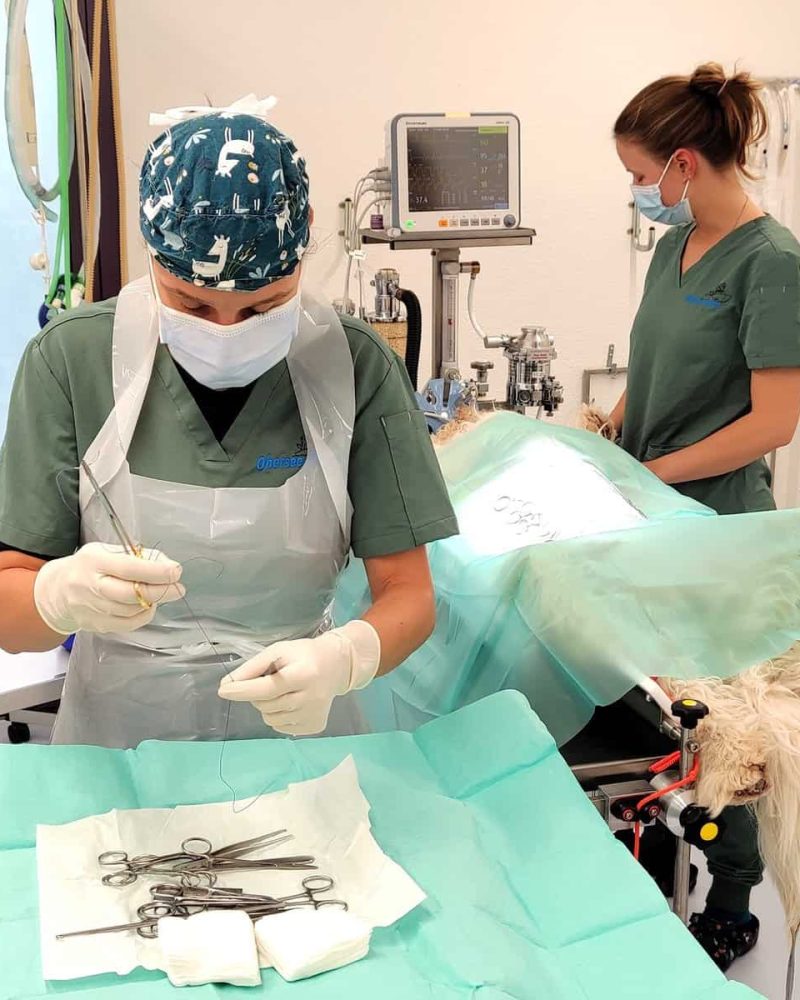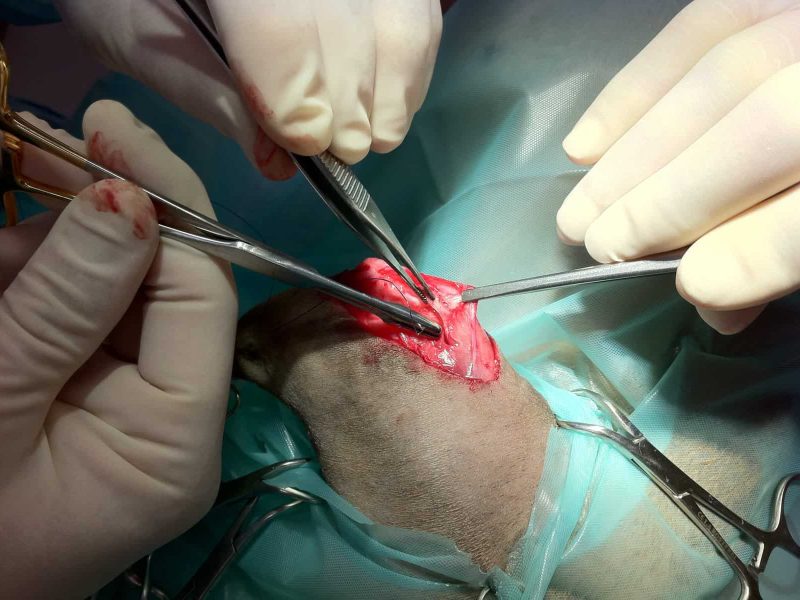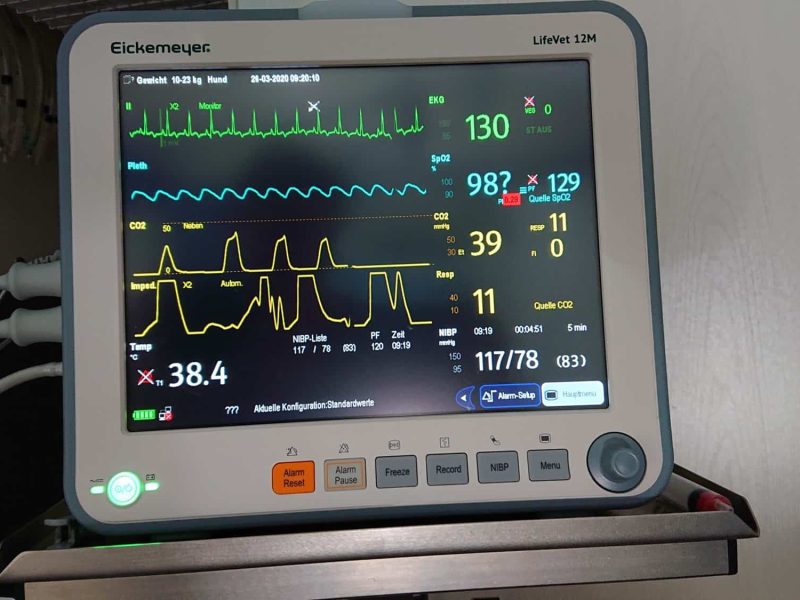Surgery
Numerous operations can be performed directly at our clinic. However, this should not tempt us to rush into a surgical intervention. It is important to us to clarify the sense of a surgical intervention well in advance and to advise the pet owners individually and comprehensively.
We base our work on the principles of evidence-based medicine (EBM), This means that only operations that demonstrably and purposefully help the patient should be used!
What operations are performed at the Obersee practice?
Surgeries are a specialty of the Obersee practice, so most procedures are performed on-site. The offer can vary somewhat depending on the type of animal. In principle, however, all animal species under care can be operated on. Here is a list of the most frequently performed surgeries:

Soft tissue surgery
- Abscess treatments
- Anal pouch removal
- Resolve intestinal obstruction (ileus)
- Remove foreign body (stomach or intestine)
- Uterine suppuration
- Castration of male and female animals
- Inguinal hernia
- Gastric torsion, also precautionary gastric fixation
- Splenectomy
- Umbilical hernia
- Urinary bladder surgery (urinary stones, tumors)
- Remove tumors
- Wound care
Orthopedic operations
- Amputations
- Ligament replacement for various joints
- Hip joint: femoral head resection for fracture, degeneration or severe osteoarthritis
- Knee: Cruciate ligament replacement for rupture of the anterior cruciate ligament
- Knee: Meniscus
- Knee: Patella luxation (patella unstable) with various techniques.
- Bone fracture (osteosynthesis)
Eye surgery
- Eyelid correction (rolling out, rolling in, shortening)
- Treatment of corneal injuries
- Eye removal
- Fixation or removal 3. eyelid
Dental treatments, jaw - operations
- Removal of damaged, painful teeth or teeth with rotten root
- Tooth root removal using the 'bone-flap' technique
- Stabilization of unstable mandibular symphyses
- Stabilization fractures of the jaw


What is the risk of anesthesia and surgery?
This is an important question that must be answered individually for each patient and the planned operation. In general, however, it can be said today that anesthesia technology in veterinary medicine is highly developed. With the choice of the appropriate anesthesia and good monitoring (especially in the recovery phase), we offer a comparable safety in veterinary medicine as in human medicine.
Unfortunately, zero risk will never be possible. However, life outside in everyday life is usually more dangerous for our patients than the extremely well-monitored time during an operation.
